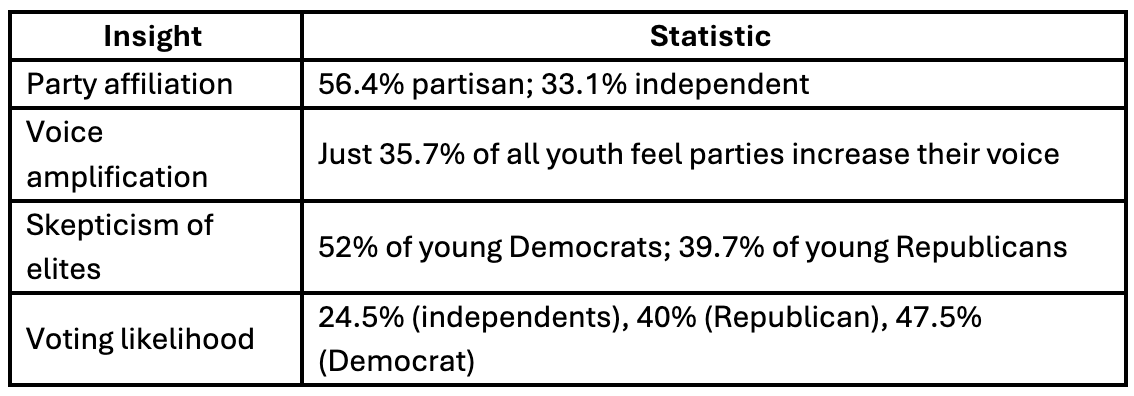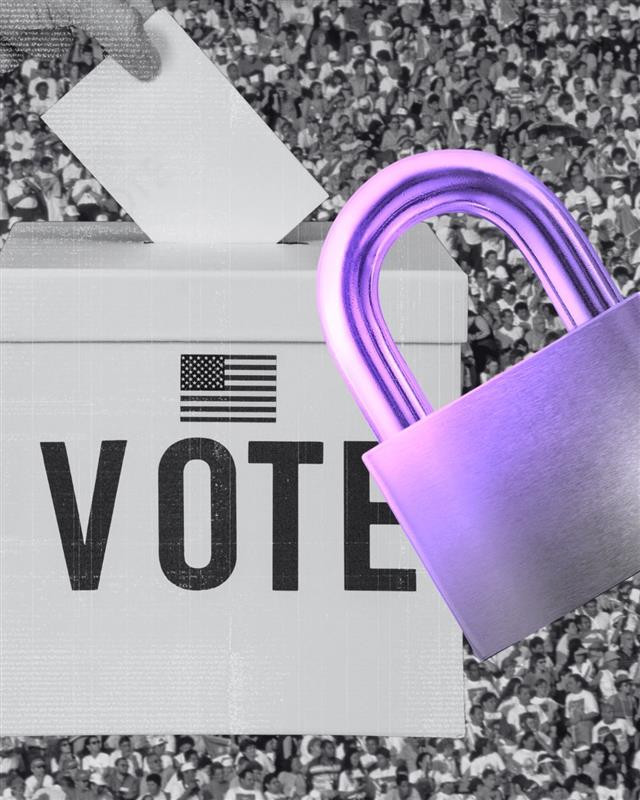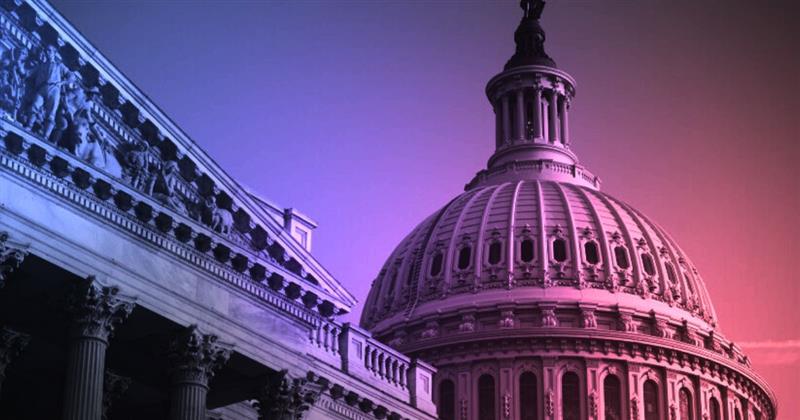From an Independent Center perspective, these trends validate the central argument: young people’s skepticism toward major parties drives their independent identity.
The Big Picture
Young Americans are increasingly wary of both major parties—and it’s reshaping the political landscape. A 2018 CIRCLE pre-election survey of 18–24 year-olds found that only 56.4% identified with either the Democrats (35.5%) or Republicans (20.9%), while a significant 33.1% chose to register as independents. Rather than ignorance, this reflects deep skepticism: only about one-third of young people believe that party membership “makes their voice more powerful”. And even among those who do affiliate, many distrust party elites—52% of young Democrats and 39.7% of young Republicans feel their parties block favored candidates.
Zooming In
- Awareness but doubt. Despite strong knowledge—65% of partisan youth and 58% of independents say they understand what parties stand for—it’s efficacy and representation they doubt.
- Lower engagement. Just 24.5% of young independents say they are extremely likely to vote, compared to 47.5% of Democrats and 40% of Republicans.
- Influenced by family—but not immune. Most youth (over two-thirds) align with their parents’ party, but independents disrupt this pattern. Youth from Republican or independent households frequently stray, whereas those from Democratic households remain aligned.
Key Facts

Additional findings:
- Untapped outreach potential. Over half of current independents say they’ve never been asked to join a party, suggesting untapped electoral potential
- Demographics matter. Young Black and Latino independents slightly more optimistic about party impact than white youth—but still largely unaffiliated
Independent Lens
From an Independent Center perspective, these trends validate the central argument: young people’s skepticism toward major parties drives their independent identity. Their doubts stem not from ignorance, but a lack of trust in party efficacy and internal fairness. This fuels their independent streak.
Unless Republicans and Democrats fundamentally rethink how they engage—and empower—young voters, deprivation of trust and representation will only deepen. This trend will likely continue, spelling challenges for both parties. As skeptical voices grow, the traditional partisan duopoly will continue losing relevance.
Final Word
Young Americans—not disinterested or uninformed—are critically observing major parties and opting out when they see no authentic representation. Their rise as independents signals a rejection of the status quo. If the two-party system fails to evolve, its grip will continue to unravel—accelerating a realignment that independent-minded voters are already beginning to usher in.


.jpeg)


.jpg)